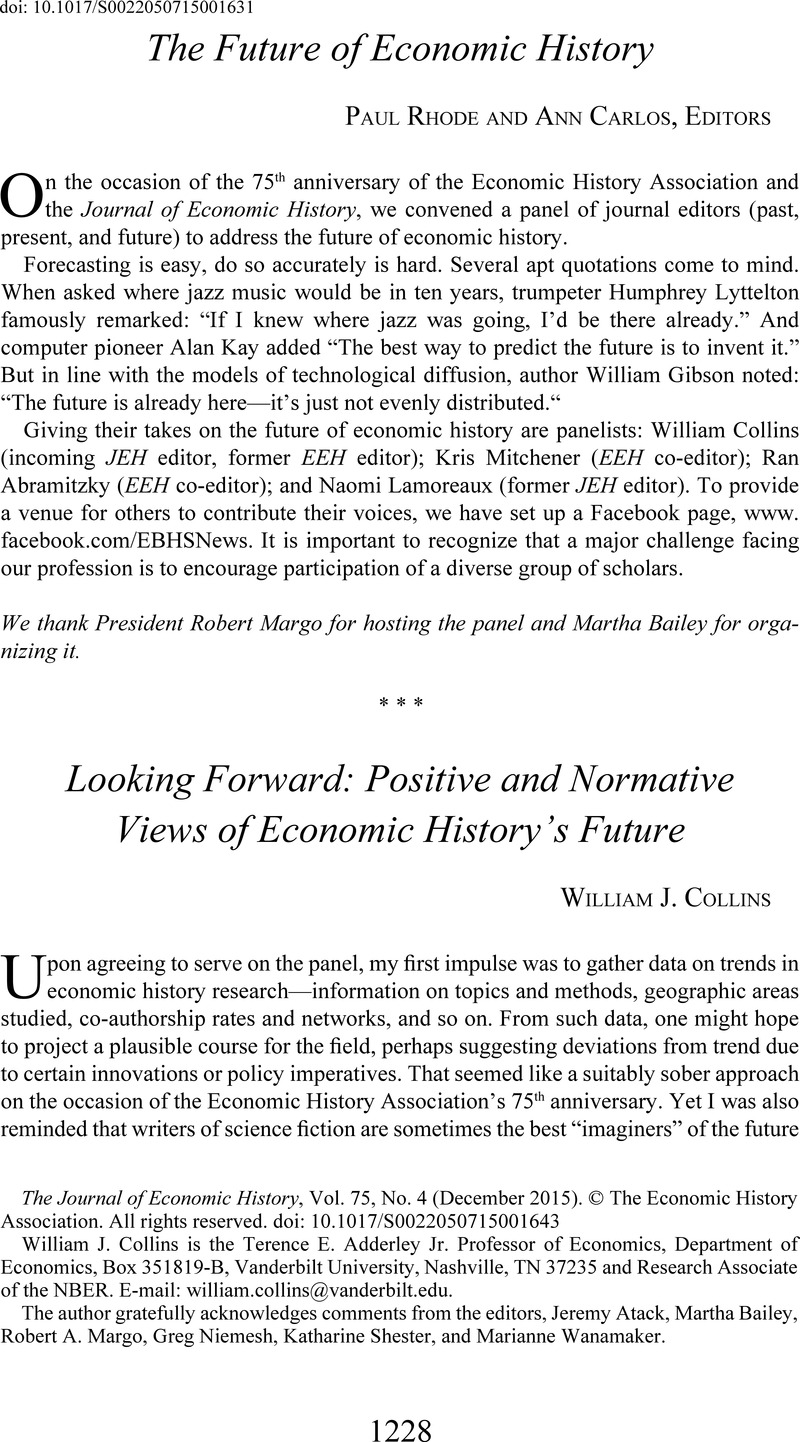Crossref Citations
This article has been cited by the following publications. This list is generated based on data provided by Crossref.
Gutmann, Myron P.
Merchant, Emily Klancher
and
Roberts, Evan
2018.
“Big Data” in Economic History.
The Journal of Economic History,
Vol. 78,
Issue. 1,
p.
268.
Collins, William J.
2018.
An Economist’s Guide to Economic History.
p.
347.
Seltzer, Andrew J.
2018.
Publication Trends and Future Challenges for the Australian Economic History Review: A Bibliometric Analysis.
Australian Economic History Review,
Vol. 58,
Issue. 2,
p.
112.
Seltzer, Andrew J.
and
Hamermesh, Daniel S.
2018.
Co-authorship in economic history and economics: Are we any different?.
Explorations in Economic History,
Vol. 69,
Issue. ,
p.
102.
Wehrheim, Lino
2019.
Economic history goes digital: topic modeling the Journal of Economic History.
Cliometrica,
Vol. 13,
Issue. 1,
p.
83.
Zimran, Ariell
2020.
Recognizing Sample-Selection Bias in Historical Data.
Social Science History,
Vol. 44,
Issue. 3,
p.
525.
Fernández-de-Pinedo, Nadia
La Parra-Perez, Alvaro
and
Muñoz, Félix-Fernando
2023.
Recent trends in publications of economic historians in Europe and North America (1980–2019): an empirical analysis.
Cliometrica,
Vol. 17,
Issue. 1,
p.
1.



